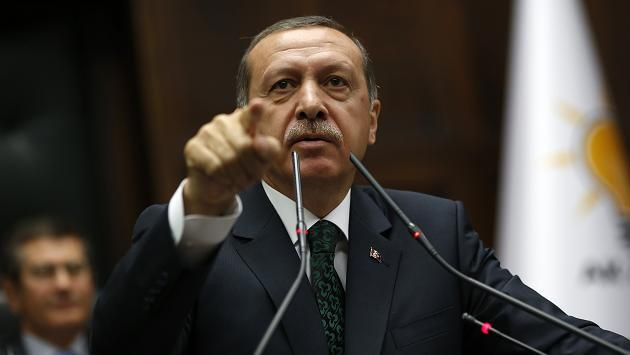Iran Nuclear Talks: How Turkey Is Quietly Influencing Both Sides

The nuclear talks between the United States, Russia, China, United Kingdom and France, plus Germany, P5+1, and Iran will conclude on Nov. 24 either with a full agreement or a short extension to continue the talks, and many experts have speculated that the delicate relationship between Tehran and Washington, D.C., will dictate the terms of the deal. But another country, Turkey, which is not included in the talks, is quietly influencing both parties to resolve the discussion sooner rather than later.
"It's not in either side's interest to have an extension last that long," Laicie Heeley, director of Middle East and Defense Policy at the Center for Arms Control and Non-Proliferation, said in a call with reporters. "It does look like they will be able to come to [an agreement]."
Turkey wants the U.S. and its P5+1 allies to wrap up negotiations with Iran because it wants to get back into Iran’s good graces economically. Turkey and Iran rely on each other for vital resources.
About 6 percent of all of Turkey’s exports go to Iran, and about 19 percent of Iran’s exports go to Turkey. Iran needs Turkey for goods such as cleaning supplies, medicine, cosmetics, plastics, textiles and electronics. Turkey relies heavily on Iran for oil and natural gas. Turkey meets 11 percent of its oil consumption from local production; the rest is imported through pipelines or tanker ships. In 2005, Iranian oil made up a total of 29 percent of all of Turkey’s imports, and in 2011, that number reached close to 51 percent. Although that number has fallen since, Turkey still sees Iran as an important trade partner.
But the economic relationship between Turkey and Iran has become more desperate in recent months. On Tuesday, the trade volume between Iran and Turkey reached a low -- $10.136 billion in the first three quarters of 2014, an 11.5 percent decrease compared with last year. Part of the reason for that decrease in trade is the high tariffs each country has implemented on the other.
Historically, Turkey and Iran have been political foes, and the two countries this year began to build up economic barriers. For example, both have increased taxes on the others’ trucks trying to deliver imports. Turkey doubled the truck transit fee for Iranian trucks last month. In response, Iran banned all Turkish trucks from buying gas in its territory.
The tariffs continue to increase between the two countries despite a preferential trade agreement in August that was supposed to lead to a commercial integration. The objective of the agreement was to boost bilateral trade volume to $35 billion -- more than double the size of what it is currently -- by the end of 2015. A nuclear negotiation that would ease economic sanctions on Iran would allow tariffs to fall and trade to flow normally again between the two countries.
The U.S. would be inclined to listen to Turkey’s economic requests because, although it is not always public about its affiliation, Turkey is one of the major players in the U.S.-led coalition fighting the Islamic State group. Turkey, which borders Syria, has allowed coalition forces to use some of its bases to better position themselves in the fighting. President Recep Tayyip Erdoğan has also publicly denounced the Islamic State group, also known as ISIS or ISIL, and said his security forces would step up efforts to stop the Sunni militant group from smuggling oil across the border and selling it on the black market.
Gaining Turkey’s support was essential for the U.S.-led coalition, because not only was it geographically strategic for setting up military installments but it's also a strong political force in the region. Turkey shares Washington's outlook on the situation in Syria and also wants President Bashar Assad out of power.
Although a nuclear agreement would benefit Turkey economically, it would also benefit the U.S. and Iran. A successful deal with Iran on the nuclear issue would be a win for President Obama, who has been pushing for this agreement for most of his time in office. And for President Hassan Rouhani, the easing of economic sanctions would allow the country to get back to where it once stood in the global economy. If no agreement is signed, the governments of Iraq and Syria could more closely align with Iran, a potentially disastrous situation for the West.
© Copyright IBTimes 2024. All rights reserved.





















